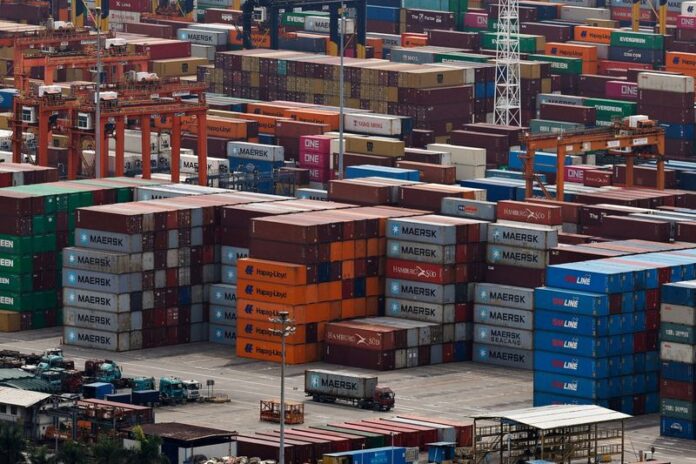By Sophie Yu, David Kirton and Ellen Zhang
BEIJING/SHENZHEN (Reuters) -When she heard the news that Washington had slashed punitive tariffs on China for at least 90 days, Deng Jinling, manager of a Chinese company that exports thermos flasks to the U.S., popped open a bottle of champagne with her husband.
While Deng celebrated the reprieve with bubbles, she worries about what might happen after 90 days, and has sent her 20-year-old daughter to the U.S. to help scout for a warehouse there to mitigate risks and guard against any further fallout from tariffs.
“My biggest worry is Trump will forget tomorrow what he said today,” said Deng, manager of Lucky Bird Trade, based in the export manufacturing hub of Yiwu, the world’s largest wholesale hub for small manufactured items, referring to U.S. President Donald Trump.
Chinese factories are heavily dependent on the U.S. market, but manufacturers in China have buckled up, uncertain on how to navigate an increasingly unpredictable trade war that has threatened to upend global supply chains – and the uncertainty prevails despite the temporary truce.
After talks with Chinese officials, the U.S. said on Monday the two sides had agreed to a 90-day pause under which Washington will cut tariffs on Chinese imports to 30% from 145% and Chinese duties on U.S. imports will drop to 10% from 125%.
While the news lifted global markets, the cheer has been tempered by caution among some manufacturers in China, given the uncertainty over what could happen after 90 days, with some still intent on scouring for opportunities overseas to hedge their bets.
Christian Gassner, General Manager of Limoss, a German manufacturer of control panels and remote devices based in the Chinese manufacturing hub of Dongguan, is in Malaysia seeking to expand operations for the U.S. market with a partner there, and says he will continue to do so despite the tariff pause.
“Even with the 90-day pause, it feels more like someone just hit the snooze button on a fire alarm. Tariffs, politics, and policy mood swings don’t exactly scream ‘stable business environment’,” he said.
“Sticking to one region these days is like building your house on a trampoline. For Limoss, the U.S. is a top-three market, so crossing our fingers isn’t a strategy – we need real options, real fast, before the next plot twist drops.”
Candice Li, marketing manager of a medical devices maker based in China’s southern province of Guangdong, said her first reaction was suspicion and she wondered if the 30% tariff would soon translate to 60%.

